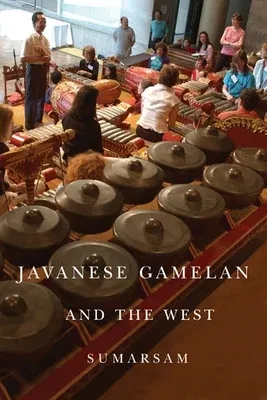Preeminant gamelan performer and scholar Sumarsam explores the concept
of hybridity in performance traditions that have developed in the
context of Javanese encounters with the West.
Javanese Gamelan and the West studies the meaning, forms, and traditions
of the Javanese performing arts as they developed and changed through
their contact with Western culture. Authored by a gamelan performer,
teacher, and scholar, the book traces the adaptations in gamelan art as
a result of Western colonialism in nineteenth-century Java, showing how
Western musical and dramatic practices were domesticated by Javanese
performers creating hybrid Javanese-Western art forms, such as with the
introduction of brass bands in gendhing mares court music and West
Javanese tanjidor, and Western theatrical idioms in contemporary wayang
puppet plays. The book also examines the presentation of Javanese
gamelan to the West, detailing performances in World's Fairs and
American academia and considering its influence on Western performing
arts and musical and performance studies. The end result is a
comprehensive treatment of the formation of modern Javanese gamelan and
a fascinating look at how an art form dramatizes changes and
developments in a culture.
Sumarsam is a University Professor of Music at Wesleyan University. He
is the author of Gamelan: Cultural Interaction and Musical Development
in Central Java (University of Chicago Press, 1995) and numerous
articles in English and Indonesian. As a gamelan musician and a
keenamateur dhalang (puppeteer) of Javanese wayang puppet play, he
performs, conducts workshops, and lectures throughout the US, Australia,
Europe, and Asia.

